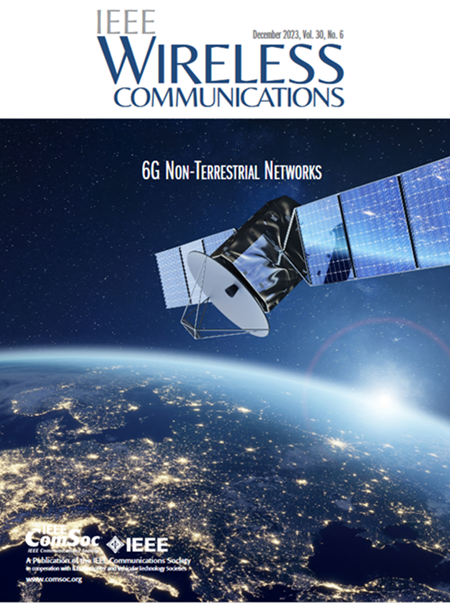基于深度强化学习的多Agent系统中面向任务的通信
IF 10.9
1区 计算机科学
Q1 COMPUTER SCIENCE, HARDWARE & ARCHITECTURE
引用次数: 1
摘要
在各个领域对执行智能任务的需求不断增加的推动下,多智能体系统(MAS)近年来引起了人们的极大关注。MAS依赖于代理之间的高效通信来交换与任务相关的信息,从而支持协同操作。同时,传统的通信系统是面向比特的,忽略了传输数据的内容和任务相关性。因此,如果在MAS中应用面向比特的通信模式,将传输大量与任务无关的数据,导致通信资源浪费和低操作效率。考虑到许多新兴的MAS都是数据密集型和延迟敏感型的,传统的通信方式不适合这些MAS。面向任务的通信是解决这一问题的一个很有前途的解决方案,但它在MAS中的应用仍然面临着各种挑战。在本文中,我们提出了一个基于任务通信的MAS框架,旨在支持Agent之间的高效合作。该框架规定了任务相关信息的收集、传输和处理,其中充分利用任务相关性来提高通信效率。基于所提出的框架,我们将深度强化学习(DRL)应用于实现面向任务的通信,其中提出了信息提取、数据传输和任务执行的模块化设计和端到端设计。最后,讨论了有待进一步研究的问题。本文章由计算机程序翻译,如有差异,请以英文原文为准。
Deep Reinforcement Learning Based Task-Oriented Communication in Multi-Agent Systems
Driven by the increasing demand for executing intelligent tasks in various fields, multi-agent system (MAS) has drawn significant attention recently. An MAS relies on efficient communication between agents to exchange task-relevant information, so as support cooperative operation. Meanwhile, traditional communication systems are bit-oriented, which neglect the content and task relevance of the transmitted data. Thus, if bit-oriented communication patterns are applied in a MAS, a significant amount of task-irrelevant data would be transmitted, leading to communication resource waste and low operational efficiency. Considering that many emerging MASs are data-intensive and delay-sensitive, traditional ways of communication are unfit for these MASs. Task-oriented communication is a promising solution to deal with this issue, but its application in MAS still faces various challenges. In this article, we propose a task-oriented communication based framework for MAS, aiming to support efficient cooperation among agents. This framework specifies the collection, transmission, and processing of task-relevant information, in which task relevance is fully utilized to enhance communication efficiency. Based on the proposed framework, we then apply deep reinforcement learning (DRL) to implement task-oriented communication, in which a modular design and an end-to-end design for information extraction, data transmission, and task execution are proposed. Finally, the open problems for future research are discussed.
求助全文
通过发布文献求助,成功后即可免费获取论文全文。
去求助
来源期刊

IEEE Wireless Communications
工程技术-电信学
CiteScore
24.20
自引率
1.60%
发文量
183
审稿时长
6-12 weeks
期刊介绍:
IEEE Wireless Communications is tailored for professionals within the communications and networking communities. It addresses technical and policy issues associated with personalized, location-independent communications across various media and protocol layers. Encompassing both wired and wireless communications, the magazine explores the intersection of computing, the mobility of individuals, communicating devices, and personalized services.
Every issue of this interdisciplinary publication presents high-quality articles delving into the revolutionary technological advances in personal, location-independent communications, and computing. IEEE Wireless Communications provides an insightful platform for individuals engaged in these dynamic fields, offering in-depth coverage of significant developments in the realm of communication technology.
 求助内容:
求助内容: 应助结果提醒方式:
应助结果提醒方式:


